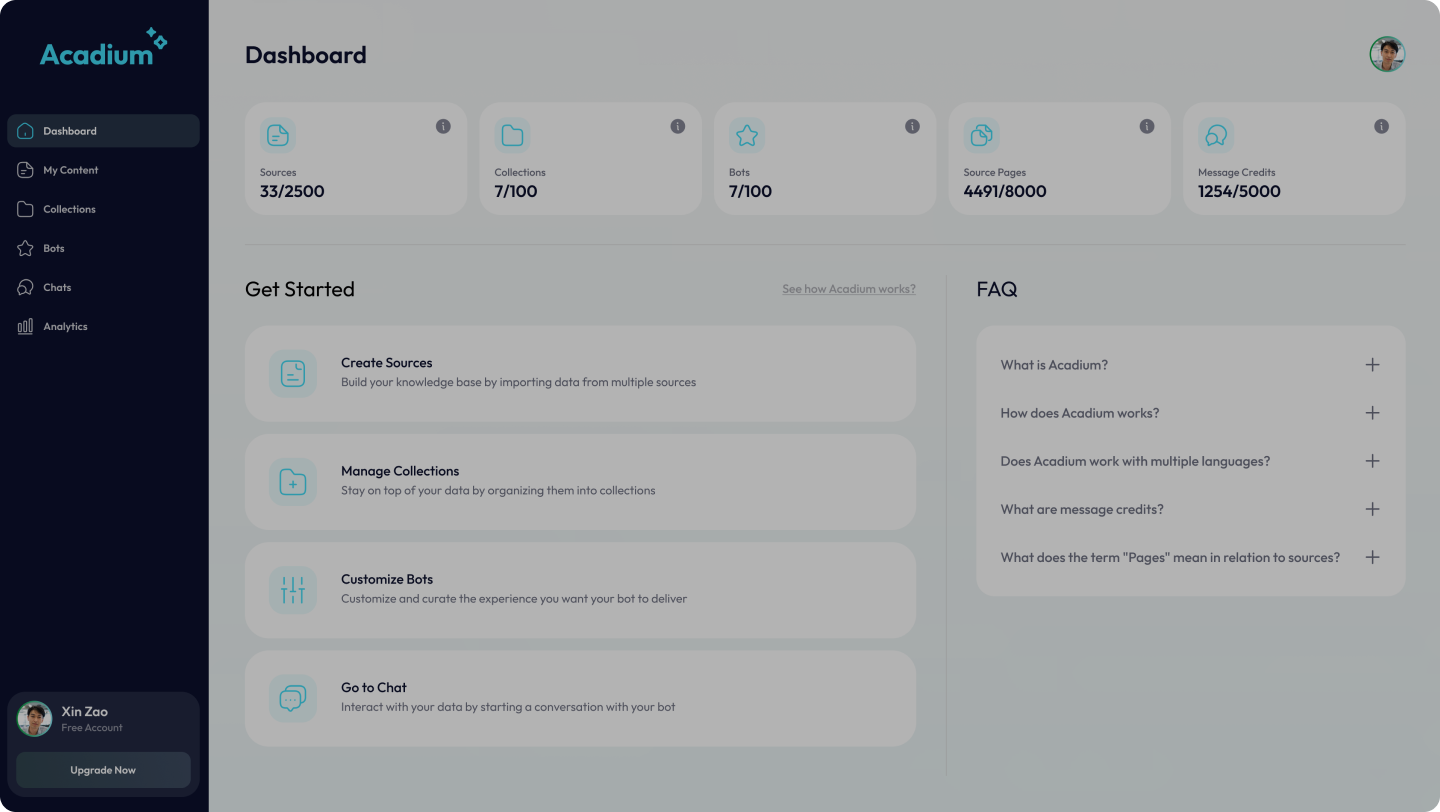Artificial Intelligence (AI) is making groundbreaking strides in the medical research field, transforming how diseases are detected, studied, and treated. From identifying new subtypes of ovarian cancer to improving stroke diagnosis, AI is at the forefront of medical innovation.
Acadium can play a pivotal role in bringing similar advancements to higher education and research institutions. Let’s explore some of these breakthroughs and how Acadium can facilitate similar innovations.
Early Detection of Diseases with AI
A recent study from the University of Edinburgh showcased an AI-powered blood test capable of identifying the earliest signs of breast cancer, surpassing traditional detection methods. Similarly, AI has been utilized to predict the progression of Alzheimer’s disease, significantly outperforming conventional clinical tests. These advancements underscore AI’s potential in early disease detection, which is crucial for timely intervention.
Acadium’s Application: Acadium can be leveraged by institutions to develop data analysis and facilitate data processing. Acadium could also potentially help researchers accelerate the development of early detection systems for various diseases.
AI in Disease Classification and Personalized Medicine
At Washington University, researchers utilized AI to define new subtypes of common brain disorders, leading to more personalized treatment approaches. Additionally, AI’s role in healthcare extends to predicting disease outbreaks and improving diagnostic accuracy, as demonstrated in the use of AI for tuberculosis detection and in predicting cardiovascular events by analyzing patient data. AI’s ability to analyze vast datasets allows for the identification of subtle patterns, enabling the classification of diseases into more precise subtypes.
Acadium’s Application: With Acadium, researchers can conduct comprehensive data analyses, which could potentially lead to the identification of new disease subtypes or variations. This could foster innovation within academic research, providing the tools to make significant contributions to medical science.
AI in Predicting Disease Progression
AI has also been instrumental in predicting the progression of diseases like Alzheimer’s, and in diagnosing early signs of stroke through advanced brain scan analyses.
Acadium’s Application: Acadium can be integrated into medical research programs to assist in predicting disease outcomes. By utilizing AI to analyze patient data, students and researchers can engage in cutting-edge projects that predict disease progression, thus contributing to the development of more effective treatments.
AI in Drug Discovery and Development
AI is revolutionizing drug discovery by identifying potential new drugs faster and more efficiently than traditional methods. From potentially unearthing “miracle drugs”, to improving existing treatments, AI’s role in pharmaceutical research is expanding rapidly.
Acadium’s Application: Acadium can support drug discovery research by providing AI tools that streamline data analysis and model testing. This can help researchers identify new drug candidates, reduce the time to market, and lower research costs, ultimately driving innovation.
Enhancing Research Efficiency with AI
Medical research often involves time-consuming processes such as literature reviews, data collection, and compliance paperwork. AI has been shown to significantly reduce these burdens, allowing researchers to focus on critical thinking and innovation.
Acadium’s Application: Acadium’s administrative systems can automate these tasks, improving research efficiency. By reducing the administrative load, researchers in higher education can allocate more time to experimental design and data interpretation, fostering a more productive research environment.
The integration of AI into medical research has yielded remarkable advancements, from early disease detection to personalized medicine and drug discovery. Acadium offers institutions the tools to harness AI’s power, enabling researchers to accelerate research, enhance learning outcomes, and position themselves at the forefront of medical innovation. Get in touch today to find out how we can help you harness the power of AI to advance your research initiatives.












